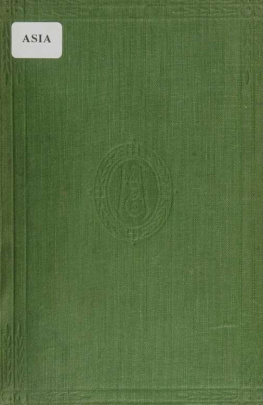Bower - Broken Dreams
Here you can read online Bower - Broken Dreams full text of the book (entire story) in english for free. Download pdf and epub, get meaning, cover and reviews about this ebook. year: 2007, publisher: Simon & Schuster UK, genre: Detective and thriller. Description of the work, (preface) as well as reviews are available. Best literature library LitArk.com created for fans of good reading and offers a wide selection of genres:
Romance novel
Science fiction
Adventure
Detective
Science
History
Home and family
Prose
Art
Politics
Computer
Non-fiction
Religion
Business
Children
Humor
Choose a favorite category and find really read worthwhile books. Enjoy immersion in the world of imagination, feel the emotions of the characters or learn something new for yourself, make an fascinating discovery.

- Book:Broken Dreams
- Author:
- Publisher:Simon & Schuster UK
- Genre:
- Year:2007
- Rating:4 / 5
- Favourites:Add to favourites
- Your mark:
- 80
- 1
- 2
- 3
- 4
- 5
Broken Dreams: summary, description and annotation
We offer to read an annotation, description, summary or preface (depends on what the author of the book "Broken Dreams" wrote himself). If you haven't found the necessary information about the book — write in the comments, we will try to find it.
Bower: author's other books
Who wrote Broken Dreams? Find out the surname, the name of the author of the book and a list of all author's works by series.
Broken Dreams — read online for free the complete book (whole text) full work
Below is the text of the book, divided by pages. System saving the place of the last page read, allows you to conveniently read the book "Broken Dreams" online for free, without having to search again every time where you left off. Put a bookmark, and you can go to the page where you finished reading at any time.
Font size:
Interval:
Bookmark:


To Alexander and Oliver,
and to the memory of
George G. Bower
A Snapshot on 13 March 2002
In the uneven light, the complacency was suffocating. Footballs apparatchiks were celebrating a funeral. On 13 March 2002 at West Hams new stadium in east London, a hundred people witnessed the entombment of a valiant campaign for honesty in English football.
They were gathered for the launch of the Independent Football Commission, originally proposed to combat corruption in English football. On a raised dais in the middle of a long reception room beamed Professor Derek Fraser, the new Commissions chairman. Frasers principal qualification seemed to be his obscurity. Until his appointment, the historian and vice-chancellor of the University of Teeside was unknown in public life beyond three inconsequential committees in Middlesbrough. In the distant past, Fraser had occasionally bought a ticket to watch football matches from the terraces. Chairmanship of the Independent Football Commission promised him enhanced status, association with a collection of marginal Westminster personalities and a guaranteed seat in every stadium across England and Wales.
During his introduction Professor Fraser did not minimize his impotence. He explained that the Commission could advise but not impose its opinions. I think the IFC can work, said Fraser, emphasizing the word think, and continued, I cant promise it will work. His own priority was to examine ticketing and merchandising issues at the heart of football, he said although he lacked any significant experience of investigation or regulation. Football fans would dispute his priorities. Many active supporters were irritated by individual clubs exploiting their life-long support, but the majority were more troubled by the developing financial crisis that endangered their clubs survival. That peril was being aggravated by the drain of money towards spiralling wages, foreign clubs and unscrupulous agents. Fraser appeared oblivious to the fears of insolvency and widespread suspicions of dishonesty. Im unaware of any corruption in football, he announced, but there was a lecture at my university about corruption in public life. I was surprised about it.
In the audience, Richard Scudamore, the pugnacious chief executive of the Premier League since October 1999, smiled with satisfaction. Over the previous three years, Scudamore, a former executive at Yellow Pages, and paid a salary of 653,495 by the Premier League, had opposed a proposal by the Labour government to create an effective regulator empowered to investigate any wrongdoing and enforce probity in football. That afternoon he chortled, I got what I wanted. In his emphatic manner Scudamore insisted, Theres no corruption in football. The promoters of footballs new gospel, especially the twenty chairmen of the Premier League clubs, habitually sneered at the orthodox fans who challenged those profiting from the games glamour and passion. Football was no longer a working mans game but an entertainment business. The Premier League had wilfully challenged and minimized the authority of the Football Association. Regulation was disliked by the mavericks, tycoons and opportunists attracted to football. United by their egoism and passion, they were accustomed to and even relished the harshness of their game, as shown by the selection of players and their violent clashes on the pitch. In summary, they disliked controls. Football is not a business but a sport dependent on excitement and speculation, explained Scudamore breathlessly. The games finances have always been precarious. Clubs have always spent more than they earned. Teams have always been on the verge of bankruptcy. And therell always be rich men ready to pour more money into clubs just to be part of the game.
The swirl of money from the Sky television bonanza had transformed English football. Premier League clubs employed some of the worlds greatest players and their matches ranked among the best for any audience. Bravado mesmerized the English game. The slaughter at the Hillsborough and Heysel stadiums had been overshadowed by the new profiteering, attracting the incompetent and the dishonest. Old fans were appalled by the new culture. In the opinion of Scudamores paymasters, however, any investigation of footballs money trail was undesirable, unless compelling reasons arose.
On the platform, Richard Scudamores triumphalism was endorsed by Adam Crozier, the chief executive of the FA. The image-conscious former advertising salesman, bearing a striking resemblance to Peter Mandelson, had once acknowledged the cancer of corruption in football. At a Lancing College old boys dinner in March 2001, Crozier had identified specific transfers of foreign players, suggesting that millions of pounds had disappeared in bungs secret payments by agents to managers of clubs. Croziers indiscretion had caused uproar among members of the FA. He had chosen never to repeat the truth publicly, preferring to categorize his revelation as tongue in cheek. Thereafter, the aspiring modernizer emphasized the success of footballs wide and extensive regulation. At the launch of the Commission, Crozier praised the FAs imposition of best financial practice on clubs, and spoke about the importance of accountability and transparency. In self-justification he added, We, the FA, are the regulator. If Croziers self-praise was accurate, and football was well regulated by his staff, then the creation of the new Commission was unnecessary, but Crozier felt compelled to utter an admission. I can see that a lot in the running of football has not been right, he conceded, and that justified the Commissions purpose to change footballs culture, how it is managed and developed. This was a marketing man lacking passionate affection for football or the confrontational manner to take on the combative chairmen of the Premier League clubs. He glanced nervously at Richard Caborn, the bearded minister of sport, sharing the platform.
The junior minister had discredited himself shortly after his appointment in June 2001 by revealing on radio his ignorance about sport. Creating the Commission had been delayed by two years, admitted Caborn apologetically, appealing to his audience to ignore earlier mistakes. The word mistakes was a guarded reference to the dispute during 1999 between those proposing the regulator including Downing Street and members of the Labour governments Football Task Force and the Premier League and Football Association. The scars and anger had not disappeared. Caborns endorsement of the Commission as the last piece of the jigsaw to be put into reality rang hollow for those disappointed by the creation of a feckless committee rather than the establishment of an independent regulator. His speech also highlighted the irony of celebrating the victory of Richard Scudamore creating a toothless regulator at West Hams stadium; an irony to which Professor Fraser and Richard Caborn were oblivious.
One year earlier, Harry Redknapp, West Hams robust manager, had been dismissed. During seven turbulent years, Redknapp had bought and sold 134 players, an extraordinary number for any club. His hyperactivity had alarmed Terry Brown, West Hams taciturn chairman. What is Harry up to? Brown had occasionally asked Peter Storrie, the clubs managing director. Storrie reassured Brown that there was no evidence of any dishonesty by Redknapp, just unease about his close relationships with agents and his own advice, You should . Terry Browns worries caused little concern to Richard Scudamore. The financial mysteries bedevilling the Premier League, the fatal imbalance between the clubs precarious solvency and the multimillion pound earnings of their celebrity stars evoked limited distress. Football, like show business, in Scudamores opinion, did not warrant the same intrusive supervision as imposed upon banks, Lloyds insurance and international corporations in the City of London. Passing footballs fit and proper test, Scudamore believed, should not depend upon the financial record of footballs executives but on the criterion of all sports: survival of the fittest, threatening the weakest with extinction.
Font size:
Interval:
Bookmark:
Similar books «Broken Dreams»
Look at similar books to Broken Dreams. We have selected literature similar in name and meaning in the hope of providing readers with more options to find new, interesting, not yet read works.
Discussion, reviews of the book Broken Dreams and just readers' own opinions. Leave your comments, write what you think about the work, its meaning or the main characters. Specify what exactly you liked and what you didn't like, and why you think so.

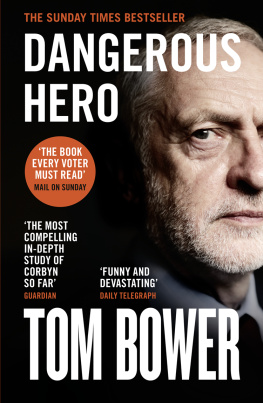
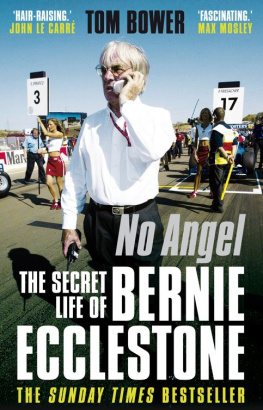
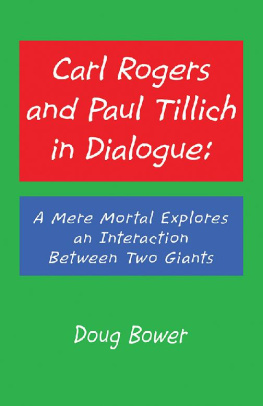
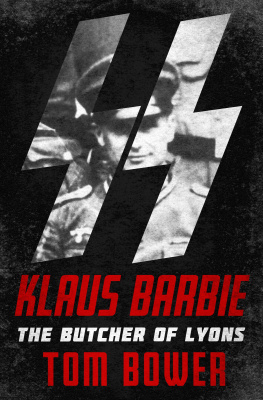

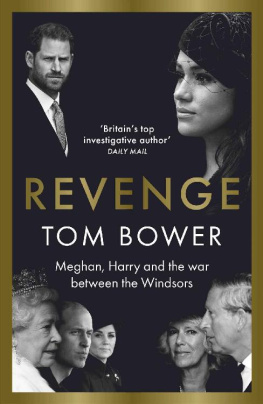

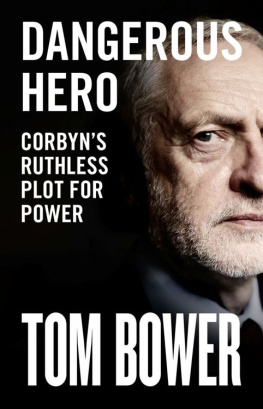
![Stefan Baumgartner [Stefan Baumgartner] - Front-End Tooling with Gulp, Bower, and Yeoman](/uploads/posts/book/120519/thumbs/stefan-baumgartner-stefan-baumgartner-front-end.jpg)
